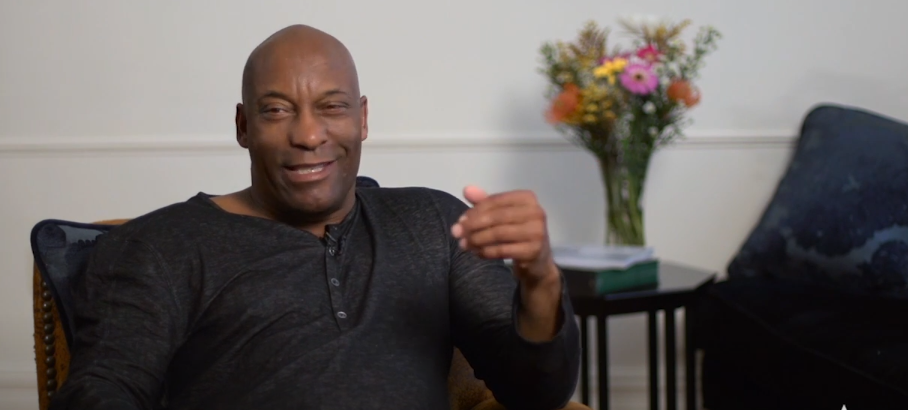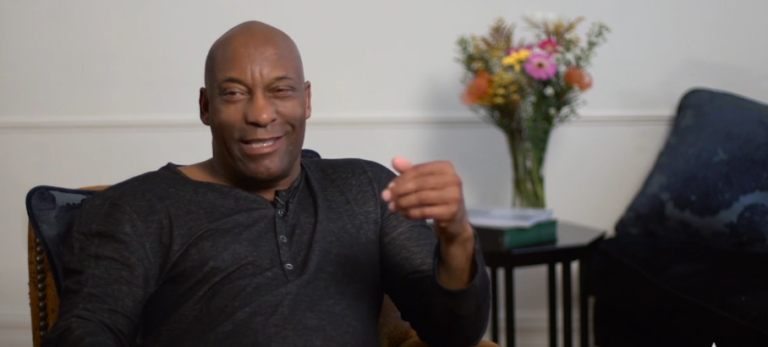John Singleton, an American director, screenwriter, and producer, redefined the landscape of Hollywood with a career that spanned over three decades. Known for his thought-provoking films, Singleton took on topics such as race, identity, and the struggles of urban life in ways that had never been seen before in mainstream cinema. At just 24 years old, he made history with his film Boyz n the Hood (1991), becoming the youngest person and the first African American to receive an Academy Award nomination for Best Director. His work resonated deeply within the African-American community and across global audiences, breaking boundaries and reshaping cinematic storytelling.
Singleton’s pioneering career was marked by its willingness to tackle sensitive subjects with uncompromising honesty. Films like Poetic Justice (1993), Higher Learning (1995), and Rosewood (1997) continued his exploration of systemic issues, while 2 Fast 2 Furious (2003) and Baby Boy (2001) marked his transition into commercial filmmaking. Even as his career evolved, Singleton remained a visionary voice in the industry, using film and television to depict the complexities of African-American experiences with an authenticity that made his work stand out. His personal connections to the world of hip-hop, music, and urban culture infused his work with a unique energy and style, elevating his stories far beyond entertainment to become cultural touchstones.
| Category | Details |
|---|---|
| Full Name | John Daniel Singleton |
| Date of Birth | January 6, 1968 |
| Place of Birth | Los Angeles, California, USA |
| Date of Death | April 28, 2019 (aged 51) |
| Resting Place | Forest Lawn Memorial Park, Hollywood Hills, CA |
| Occupation | Director, Screenwriter, Producer |
| Years Active | 1988–2019 |
| Spouse | Akosua Busia (married 1996, divorced 1997) |
| Children | 7 |
| Notable Works | Boyz n the Hood (1991), Poetic Justice (1993), 2 Fast 2 Furious (2003) |
| Net Worth | $35 Million (at the time of death) |
| Career Highlights | First African-American nominated for Best Director Academy Award, Co-created Snowfall (2017) |
| Reference | Wikipedia |

Singleton was estimated to have had a net worth of $35 million at the time of his passing. Despite being impressive, this number does not adequately convey the breadth of his impact on popular culture and Hollywood. In addition to earning Singleton Oscar nominations, Boyz n the Hood gave many filmmakers of color a platform to tell stories that had previously been marginalized or disregarded by the mainstream. His early success was enormous. The systemic challenges that African-American communities face, such as racial violence, police brutality, and the difficulties of growing up in an inner city, were brought to light by Singleton’s work in the 1990s. His characters, who were frequently complex and incredibly human, gave stories that had previously been reduced to clichés a degree of complexity.
Singleton’s impact extended well beyond the screen, especially in the hip-hop scene. His partnerships with rappers like Janet Jackson, Tupac Shakur, and Ice Cube solidified his status as a significant cultural figure who united the music and film industries. Music and film were further combined when Singleton directed the music video for Michael Jackson’s “Remember the Time” (1992), which went on to become an iconic piece in and of itself. He was especially creative in his ability to combine these cultural influences, which enabled him to make films that spoke to a broad audience across genres and races.
His creative spirit was unaffected by his move into commercial filmmaking. Shaft (2000) and 2 Fast 2 Furious (2003) were both high-profile action movies, but Singleton’s distinctive aesthetic and dedication to telling intricate, multi-layered tales persisted. As 2 Fast 2 Furious became the highest-grossing movie of Singleton’s career at the time, earning over $236 million worldwide, it actually set a new record for him. While maintaining a degree of cultural relevance that many directors find difficult to sustain, this was an incredibly successful entry into mainstream commercial filmmaking.
Singleton, who had long admired television for its storytelling potential, made his foray into the medium in the ensuing years. He was a co-creator of the 2017 crime drama Snowfall, which debuted on FX and won praise from critics for depicting the early stages of the crack cocaine epidemic in Los Angeles. The show demonstrated Singleton’s ability to write gripping stories while addressing significant social issues. With Snowfall, he explored the systemic effects of drugs on people and communities, reverting to a more intimate and socially conscious storytelling style. Another successful phase of Singleton’s career was his entry into television, which demonstrated both his depth of knowledge of the topics that influenced his work and his versatility as a storyteller.
Singleton remained a well-liked and respected figure in the entertainment industry despite overcoming both personal and professional obstacles throughout his life, including a well-publicized family feud after a stroke he suffered in 2019. The family conflict, which arose after Singleton’s stroke and subsequent coma, turned into a tragic afterthought in his otherwise remarkable career. The complexity of his personal life was highlighted by his health issues, especially his battle with a severe stroke that ultimately resulted in his premature death at the age of 51. Nevertheless, Singleton’s legacy endured despite these difficulties.
Singleton’s legacy as one of the most significant directors of his generation was unaffected by his personal struggles. His TV series and movies still have an effect on the entertainment industry as a whole as well as the African-American community. He stands out for his ability to authentically and compassionately portray the harsh realities of life, which enables him to produce work that is both highly impactful and entertaining. Other filmmakers of color were able to benefit from Singleton’s work, and his impact is still evident in the current state of film and television, where more diverse narratives are being told than ever before.



